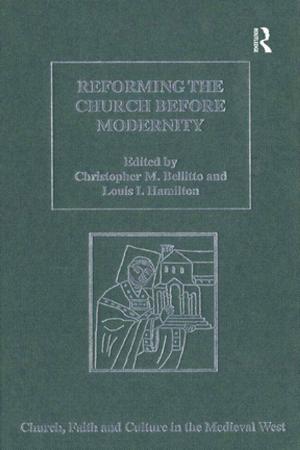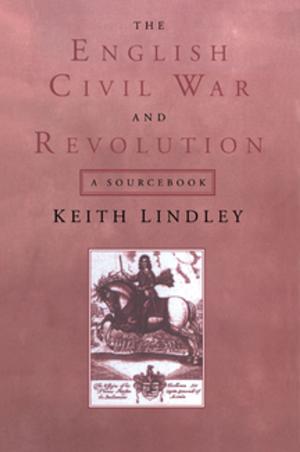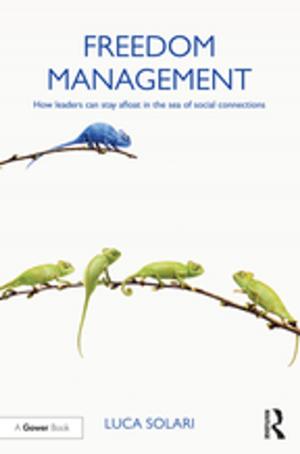| Author: | John Shand | ISBN: | 9781317494355 |
| Publisher: | Taylor and Francis | Publication: | January 28, 2015 |
| Imprint: | Routledge | Language: | English |
| Author: | John Shand |
| ISBN: | 9781317494355 |
| Publisher: | Taylor and Francis |
| Publication: | January 28, 2015 |
| Imprint: | Routledge |
| Language: | English |
Central Works of Philosophy is a major multi-volume collection of essays on the core texts of the Western philosophical tradition. From Plato's Republic to the present day, the five volumes range over 2,500 years of philosophical writing covering the best, most representative, and most influential work of some of our greatest philosophers. Each essay has been specially commissioned and provides an overview of the work, clear and authoritative exposition of its central ideas, and an assessment of the work's importance. Together these books provide an unrivaled companion for studying and reading philosophy, one that introduces the reader to the masterpieces of the western philosophical canon. Much of nineteenth-century philosophy may be viewed as either an affirmation or rejection of Kant. This volume therefore begins with Kant's magnum opus, the Critique of Pure Reason. Michelle Grier provides a masterly distillation of this monumental work. Curtis Bowman explores the central text of the first of the great post-Kantian idealists, Fichte who extended Kantian philosophy in a new direction. Hegel, one of Kant's most formidable critics, is given incisive treatment by Michael Inwood in his presentation of the Phenomenology of Spirit. Schopenhauer's World as Will and Representation, which hoped to solve many of the problems that Kant's philosophy left unsolved is explored in Dale Jacquette's chapter. The moral philosophy of John Stuart Mill, perhaps the only philosopher in this volume to circumvent Kant's influence, is examined in Jonathan Riley's essay on his classic work On Liberty. The philosophical ideas of Kierkegaard, widely credited as the founder of modern existentialism, are explored by Stephen Evans in his essay on Philosophical Fragments. Marx's Capital, one of the most influential books of the modern age, is given expert treatment by Tom Rockmore. The volume closes with Nietzsche, whose appropriation of Kant led to a radical anti-philosophy. Rex Welshon dissects his most philosophical and widely read work, On the Genealogy of Morals.
Central Works of Philosophy is a major multi-volume collection of essays on the core texts of the Western philosophical tradition. From Plato's Republic to the present day, the five volumes range over 2,500 years of philosophical writing covering the best, most representative, and most influential work of some of our greatest philosophers. Each essay has been specially commissioned and provides an overview of the work, clear and authoritative exposition of its central ideas, and an assessment of the work's importance. Together these books provide an unrivaled companion for studying and reading philosophy, one that introduces the reader to the masterpieces of the western philosophical canon. Much of nineteenth-century philosophy may be viewed as either an affirmation or rejection of Kant. This volume therefore begins with Kant's magnum opus, the Critique of Pure Reason. Michelle Grier provides a masterly distillation of this monumental work. Curtis Bowman explores the central text of the first of the great post-Kantian idealists, Fichte who extended Kantian philosophy in a new direction. Hegel, one of Kant's most formidable critics, is given incisive treatment by Michael Inwood in his presentation of the Phenomenology of Spirit. Schopenhauer's World as Will and Representation, which hoped to solve many of the problems that Kant's philosophy left unsolved is explored in Dale Jacquette's chapter. The moral philosophy of John Stuart Mill, perhaps the only philosopher in this volume to circumvent Kant's influence, is examined in Jonathan Riley's essay on his classic work On Liberty. The philosophical ideas of Kierkegaard, widely credited as the founder of modern existentialism, are explored by Stephen Evans in his essay on Philosophical Fragments. Marx's Capital, one of the most influential books of the modern age, is given expert treatment by Tom Rockmore. The volume closes with Nietzsche, whose appropriation of Kant led to a radical anti-philosophy. Rex Welshon dissects his most philosophical and widely read work, On the Genealogy of Morals.















